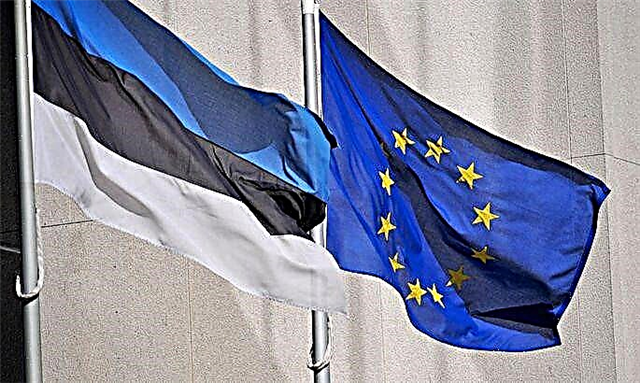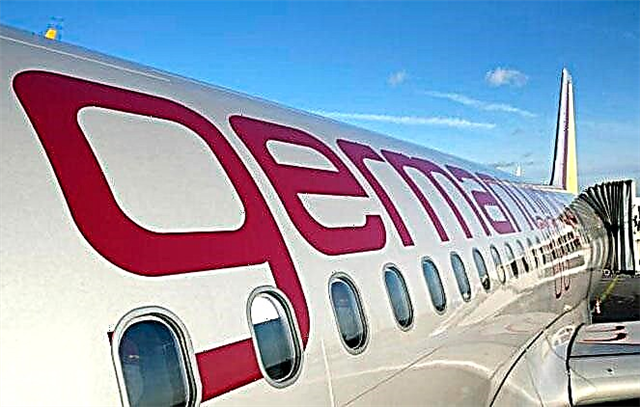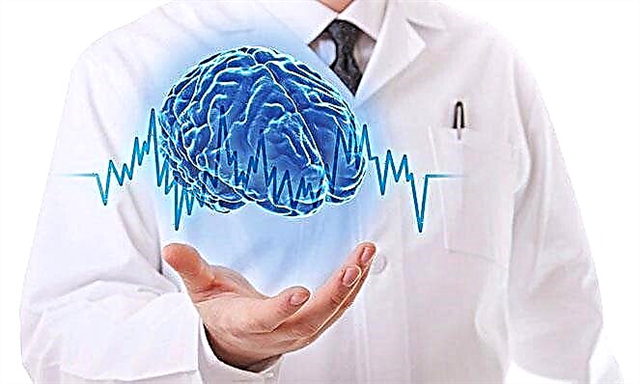Neurology in Germany is one of the leading areas of medical science and practice. German professionals in the field of neurology, using the most accurate diagnostic methods, successfully treat patients from epilepsy, Parkinson's disease and many other neurological diseases with non-drug and medical methods. Including - and by surgery, using the latest technologies.

Features of German medicine
German medicine is considered one of the best in the world. The high quality of medical services in Germany has been mainly achieved thanks to generous funding from the state budget. The money is mainly allocated for the development of the latest technologies and methods, as well as for research work.
At the same time, scientific research and treatment are successfully practiced in special medical institutions in Germany - university hospitals.
In order to simplify the process of organizing travel for treatment for patients from abroad, special international departments have been established at many German clinics.
What is treated in German neurological clinics
Most German clinics are multidisciplinary, mainly university hospitals. This means that the diagnosis and treatment of patients is carried out by specialists in various fields, which ensures an accurate diagnosis and identification of problems in the human body as a whole. Neurology is one of the main directions of multidisciplinary clinics, along with such as cardiology, oncology, orthopedics, neurosurgery, gynecology and others.
If the patient does not need an extensive examination, then you can immediately contact a medical institution specializing in a particular industry. In particular, neurology clinics exist in Germany both as separate institutions and as part of multidisciplinary medical complexes.
German neurological clinics specialize in the treatment of multiple sclerosis, diseases of the peripheral nervous system, epilepsy, circulatory disorders of the brain and spinal cord, infectious and inflammatory diseases of the nervous system, sleep problems, chronic headaches and many others.
Basic diagnostic methods
In German neurological clinics, the following technologies and diagnostic methods are most often used:
- Magnetic resonance imaging;
- positron emission computed tomography;
- electroencephalography;
- echoencephalography;
- Doppler ultrasound;
- duplex sound scanning;
- brain scan DaTSCAN;
- cerebral angiography;
- myelography;
- lumbar puncture.

The main methods of treatment
In German neurological clinics, only the most modern treatment methods are used. They can be divided into three main types:
- non-drug treatment;
- drug treatment;
- surgical intervention.
Non-drug method
Non-drug treatment in German clinics implies adherence to diet and regimen. Physiotherapy can be used in Germany without prescribing medication. In this case, the course of treatment includes such procedures as electrophoresis, manual therapy, magnetotherapy, acupuncture, massage, laser therapy. Also in Germany, phytotherapy, remedial gymnastics and psychological assistance are used in the treatment of neurological diseases.
Medication method
In case of need for drug treatment of neurological diseases, the patient is prescribed drugs that are selected for each patient individually. Epilepsy is treated with this method.
Surgical method
If medications do not help and the disease progresses, German doctors resort to surgical intervention. However, this only happens in 3% of cases.
Neurological diseases, including disorders in the functioning of the brain and spinal cord, are treated surgically by neurosurgeons. Among the basic methods they use, the following stand out:
- gamma knife - the effect of gamma rays on the focus of development of pathological cells with their subsequent blocking and destruction (used in the treatment of pathologies of intracerebral volumetric processes that require high accuracy, for example, in the trunk);
- the introduction of stem cells (Parkinson's surgical treatment is carried out using this method, the method is also very effective in the treatment of multiple sclerosis and rehabilitation after a cerebral stroke);
- neuromodulation - the method is based on deep brain stimulation (stimulation of the vagus nerve, cerebral cortex, implantation of infusion pumps, etc.).
Clinic selection
The network contains a lot of information about leading clinics in Germany and their doctors. Patients who have already undergone treatment in a particular institution also leave their comments. Among the German clinics that have proven themselves well in the field of neurology and neurosurgery, the following can be distinguished:
- Clinic "Nordwest" (neurological department), Frankfurt am Main, leading specialist in the field of neurology - Professor Uta-Meiding-Lamade (25 years of experience);
- Academic Clinic "Asklepios" (Department of Neurology) in Hamburg, where Parkinson's disease, stroke, apoplexy are successfully treated, leading specialists in the field of neurology - Dr. Veit Becker (multiple sclerosis), Jurgen Fayes, Peter Paul Urban and Stefan Schreiber (Parkinson's disease) ;
- Alfred Krupp Clinic (Department of Neurology) in Essen, the clinic treats Parkinson's disease, epilepsy, the cause of frequent fainting, leading neuropathologists - Peter Berlit and Roland Weltkamp;
- University Hospital Freiburg (Department of Neurology) Freiburg, the clinic specializes in the treatment of epilepsy, Parkinson's disease, Arnold Chiari anomalies, leading specialists - neurologist Christian Winkler and neurosurgeon Josef Zentner;
- Essen University Hospital (Department of Neurology) in Essen, the clinic was founded at the university and is a multidisciplinary one, the leading specialists in the field of neurology are Andreas Hufnagel and Christoph Kleinschnitz.
Estimated cost of diagnostics and treatment
Approximate prices for medical services in 2021 in neurological departments of German clinics are shown in the table:
| Type of medical services | Approximate cost in euros |
|---|---|
| Ophthalmologist consultation | 400-600 |
| Brain scan DaTSCAN | from 1,500 |
| Magnetic resonance imaging of the brain (MRI) | from 600 |
| Positron Emission Computed Tomography (PET CT) | 1,200-2,200 |
| Lumbar bone marrow puncture | from 3,000 |
| Diagnostics of epilepsy (complex) | from 2,500 |
| Multiple sclerosis diagnostics (complex) | 5,000-15,000 |
| Parkinson's disease diagnosis (complex) | from 1,800 |
| Craniotomy | from 25,000 |
| Gamma knife | 9,000-11,000 |
| Parkinson's disease medication | 12 |
| Deep brain stimulation (DBS) | 65,000-70,000 |
| Allogeneic bone marrow transplant (from a relative donor) | from 250,000 |
How to organize a trip and what is needed for this
There are two ways to organize a trip to Germany for medical treatment:
- contacting the clinic directly;
- contacting an intermediary company.
If you do not need help in choosing a clinic and you decided to start looking for a suitable medical institution on your own, then you can be guided by information and reviews on the Internet. Often on the official websites of clinics there are contacts for feedback.
After choosing a clinic, you should write a letter to the head physician or his secretary, describe the problem and wait for an answer with the approximate cost of treatment.If you are satisfied with the answer, write the following letter - already with a request to send an official invitation, which you will need to apply for a visa. However, it is also worth discussing the planned date of hospitalization.
While collecting documents for a visa, translate the official medical documentation issued in your country. After the visa is issued, all that remains is to resolve issues with tickets and accommodation, as well as an interpreter.
If you find it difficult to organize a trip on your own, you can use the intermediary services of special firms dealing with organizational issues. However, in this case, it is worth considering the cost of the services of this company. Mediators are engaged in the selection of the medical institution itself, in which the patient will undergo diagnostics and treatment, negotiations with the secretary of the chief physician, preparation of an invitation for a visa and other necessary documents. Also, these companies provide translation services and help with booking a hotel room and tickets.
Find out more about how a visa is issued for treatment in Germany.

Rehabilitation after treatment
There are many rehabilitation centers in Germany that allow you to recover from many neurological diseases and injuries, such as stroke, spinal injuries, spinal injuries, traumatic brain injuries, multiple sclerosis, cerebral palsy and others. Many of these centers are part of the clinics.
For example, the Nord Clinic Alliance and Asklepios clinics have their own rehabilitation department, but there are also separate private centers, for example, the Walk again robotic rehabilitation center in Berlin. Also, many sanatoriums and resorts in Germany are suitable for patients with neurological diseases, the most popular of them are Baden-Baden, Bad Kreuznach, Wiesbaden, Bad Reichenhall, Bad Fussing.
The duration of the rehabilitation course can range from four weeks to three months, depending on the general condition of the patient.
Conclusion
German neurologists have made significant progress in researching and, as a result, treating many diseases, including epilepsy, Parkinson's disease, Alzheimer's disease, cerebral palsy, and many others. The treatment program for each patient is selected individually, depending on the symptoms and stage of the disease. In some cases, it is sufficient to use medications in addition to various physiotherapeutic procedures, for example, therapeutic massages and acupuncture. But sometimes patients also need surgical treatment, then specialists in the field of neurosurgery are involved in solving the problem.











